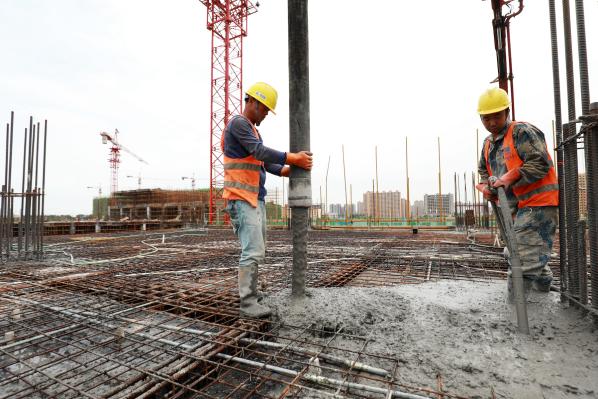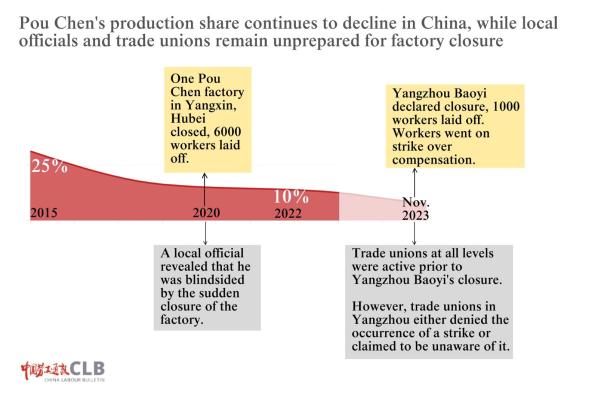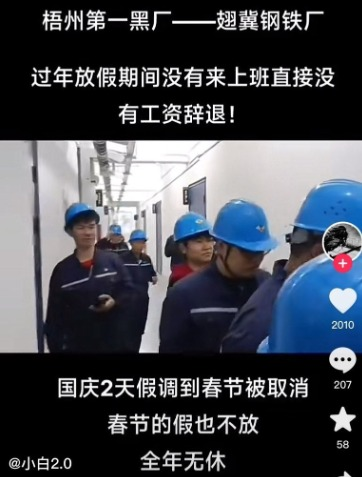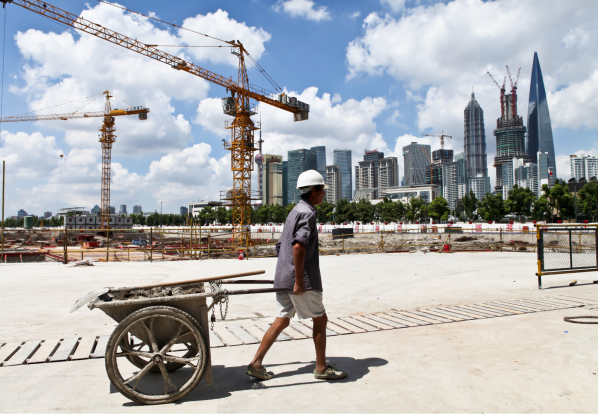China Labour Bulletin (CLB) recently reported that in one of Pou Chen’s subsidiaries in China – Yangzhou Baoyi, workers went on strike upon sudden closure, as the company shifted its supply chain from China to other regions (see Yangzhou Baoyi article). CLB conducted further investigation and found out that it is not the first time Pou Chen, the Taiwanese shoe company, announced sudden factory closures and caused chaos, when it was shifting its supply chain out of China.
Pou Chen is the world No.1 shoe supplier and employed over 31 thousand workers across Asian countries in 2022, supplying to international brands such as Nike, Adidas, Asics, New Balance, Timberland and Salomon.
Pou Chen used to employ over 10 thousand employees in Yangxin, Hubei, a town which is famous for shoe making and even has a road named after the company. During the pandemic in 2020, a Chinese government official in Yangxin was preparing to resume the company’s factory production, only to witness Pou Chen announcing the factory’s closure all of a sudden.
- On 27 February, Pou Chen planned to resume production after the Spring Festival.
- On 16 March, we negotiated face-to-face with Pou Chen, also helping the Taiwanese managers enter into China.
- On 24 March, we checked the procedures of preventing and controlling pandemic, fixing 8 April as the date for resuming production.
- On 26 March, we were told that the Yangxin factory would be closed.
- On 31 March, Pou Chen issued an official notice of closing up and firing employees.
Three years later, Pou Chen announced factory closures in Yangzhou, Jiangsu - this time two factories were to close within a month. Even though local government officials were puzzled as Pou Chen abruptly closed the factories, they still had to clean up the mess, especially when workers went on protest. The role of the government quickly shifted to “maintaining stability”, while Pou Chen had the freedom to come and go as it pleased.
CLB found that China’s local governments and trade unions are unprepared for foreign direct investment retreat, leaving workers without protections.
If local governments are aware of trends in factory relocations and take precautionary measures, there will likely be better protection of labour rights and fewer instances of labour conflicts. However, in the case of Yangzhou Baoyi, the trade unions showed a lacklustre response. Instead of representing the workers' interests, the enterprise union at Baoyi appears to align more with the company in dismissing workers, according to CLB’s research of court judgments.





